All photos by Tsao Pao Chee and Octave Institute
Who stands to benefit from mindfulness? Everyone, apparently, especially millennials of my demographic. Amidst the cacophony of responsibilities and aspirations derived after coming of age, the peaceful allure of mindfulness beckons.
As your quintessential married ‘bro’ with a toddler in tow and a 9-to-5 job, I epitomise the sandwich generation—constantly hustling through life, perennially self-critical about my responsibilities at home and at work.
Outwardly, I present myself as collected and confident, seemingly in control of my feelings and surroundings. Yet, internally, I often grapple with self-doubt: Am I a good enough father to my two-year-old? Am I contributing enough at home? Am I spending sufficient time with my wife and elderly parents?
Finding time to focus inward seems like a luxury I can scarcely afford. But I found myself drawn to explore this ancient practice of ‘me time’ under the guidance of an unexpected mentor: a fourth-generation family business steward who’s also a mindfulness advocate.
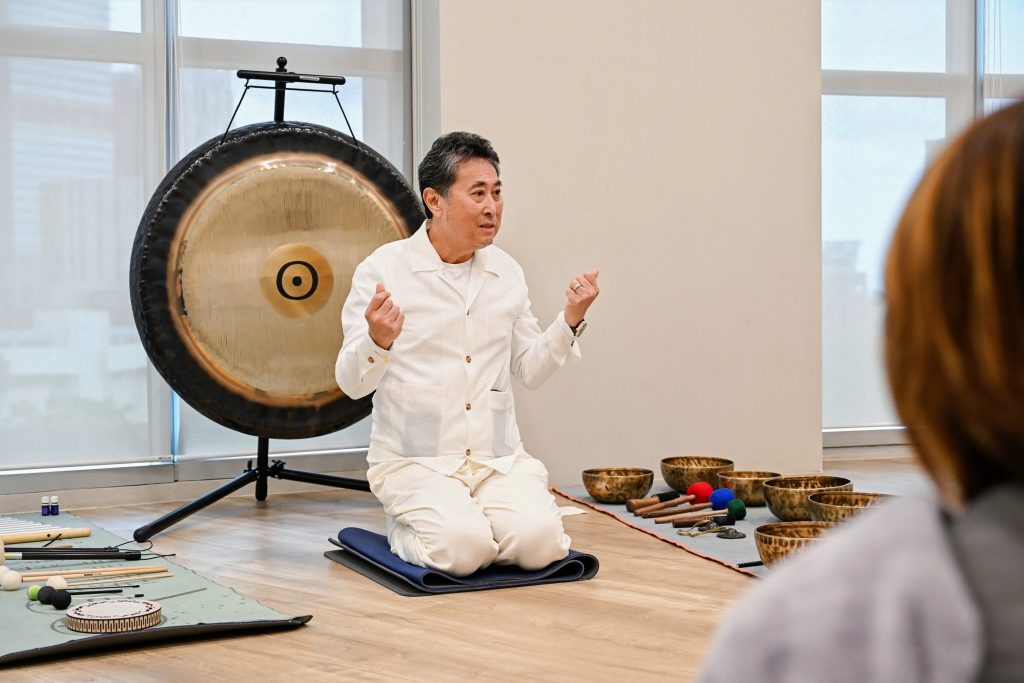
The Chairman of Taking a Break
For context, I’ve been discussing social impact projects with the TPC (Tsao Pao Chee) family business. After a recent meeting, they invited me to a mindfulness workshop organised by the Octave Institute, a division of the TPC Group that supports business leaders and family business owners.
Chairman Chavalit Frederick Tsao, a luminary in business and philanthropy, has charted an unconventional course. Departing from the traditional narratives of profit and conquest, Tsao’s journey is one of introspection and holistic well-being. As the steward of the TPC Group, he has cultivated a legacy that transcends corporate borders, fostering benevolent leadership and bridging Eastern wisdom with Western pragmatism.
Besides his endeavours in mindfulness, Tsao has founded the East West Cultural Development Centre that helps nurture benevolent leaders, and the Sangha Retreat that blends Eastern and Western medicine.
Rather than focusing on profits and material objectives, his primary interests are mindfulness and holistic well-being.

Try This at Home
Tsao started our programme with a discussion about the importance of practising mindfulness as part of our daily routine.
Tsao’s extensive research into mindfulness and healing is rooted in his belief that well-being is the key to solving new-economy problems and fostering global change. His findings have been published in his book and also referenced in the books of many other authors.
During our intimate conversations, Tsao challenged us to question our purpose in life and ask how we can positively impact the people around us and, potentially, the world.
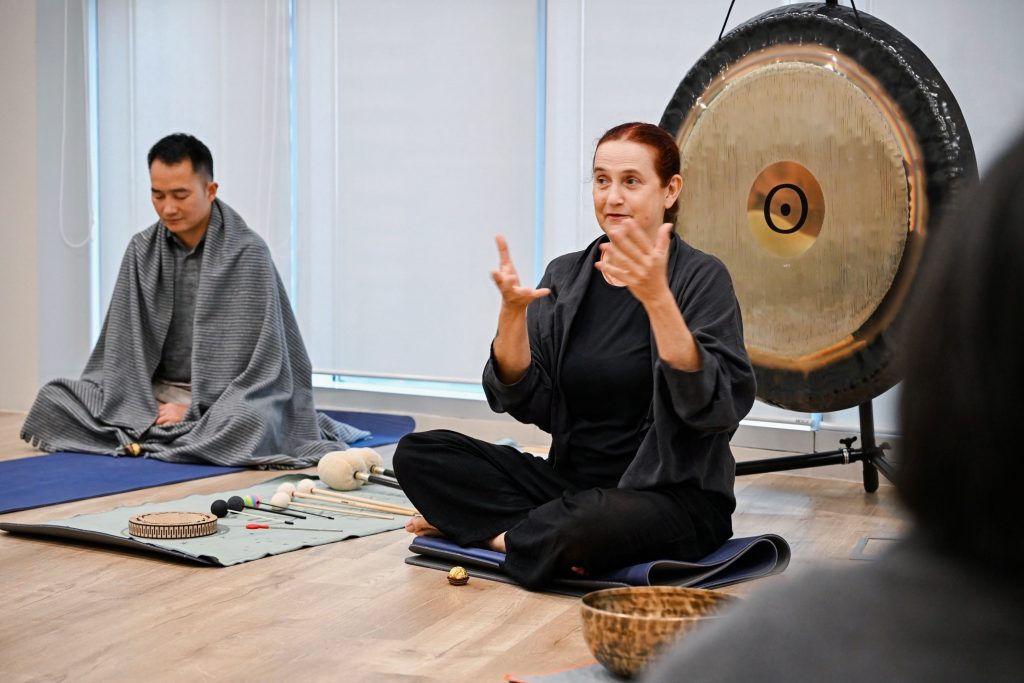
Our steward introduced Susanna Eduini, a professional mindfulness coach who guided us through breathwork and sound healing exercises.
As our mindfulness exercise gradually began, she whispered words of motivation to help guide us along this powerful process.
We began with simple and calming steps. Susanna instructed us to inhale deeply through the mouth and exhale forcefully while keeping our eyes closed and envisioning ourselves purging negative energy.
As we lay there, palms up, I started to feel my breathing become deeper and deeper as I focused on Susanna’s guidance, which was accompanied by soothing music.
“Breathwork is the fastest way to get to a meditative state. In a meditative state, we can connect with our true selves,” Tsao says.
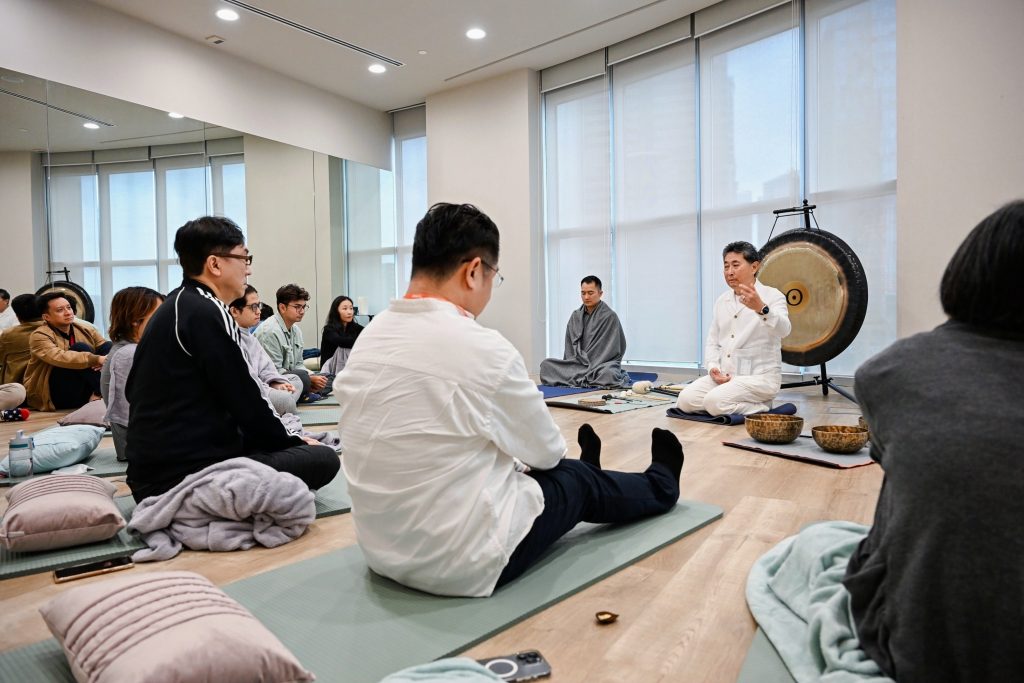
At first, this relaxing setting led my mind to wander, but I soon felt my fingers curling, my toes twitching, and my jaw tensing.
Susanna checked on me, and I acknowledged the discomfort in my jaw and my stiffened fingers.
She whispered, “Let it go, speak your truth, and find your purpose.”
Her words helped me alleviate the discomfort and brought me to an epiphany. I reconnected with my younger self—the boy who felt his sole responsibility was to shield and provide for the people around him.
I felt vulnerable, but Tsao assured me that vulnerability is a fact of life.
“We are always vulnerable, and there are always unknowns,” quips Tsao. “I have to deal with our vulnerable feelings in order to see the truth. Dive into the deep blue sea.”
Perhaps the discomfort I felt stemmed from my daily stressors, like caring for my young child and trying to spend quality time with my wife and child.
I’m sure I’m not alone—I’m one of many working millennials who juggle our family and financial commitments while our physical and mental health teeter precariously, and we try to find slivers of downtime in between.
Tsao highlights that the difference maker is the emotions that we embrace when resolving these struggles.
“There are lower-energy emotions like anger, fear, shame and guilt, and then there are ascending emotions, like empowerment and acceptance,” he remarks.
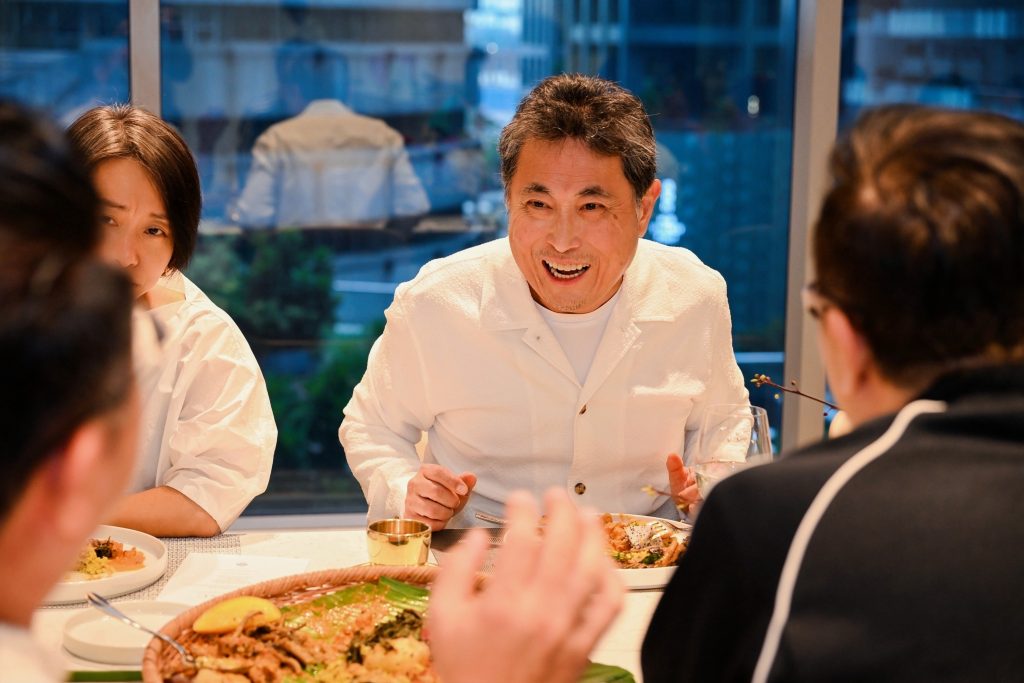
With Gratitude
The session, which felt like a few minutes of meditation, in fact, lasted an hour and a half. We rounded off the day with a plant-forward meal prepared by the Octave Institute’s culinary director as the mindfulness workshop leaders shared more about mindful eating techniques.
Mindfulness eating techniques emphasise a deep appreciation for food’s origins, flavours, and impact on our well-being, enriching our relationship with food. I was shown how slowly chewing food without distractions—savouring each bite—can enhance the pleasure of eating and help regulate appetite, reduce overeating, and promote better digestion.
“Your good experiences shape your future, and you have to let go of your bad experiences,” shares Tsao.
As we savoured each morsel with reverence, Tsao’s words echoed in our minds, reminding us of the profound interplay between nourishment and consciousness. In the act of eating, we found communion with the rhythms of nature, honouring the interconnectedness of all beings and the sanctity of sustenance.
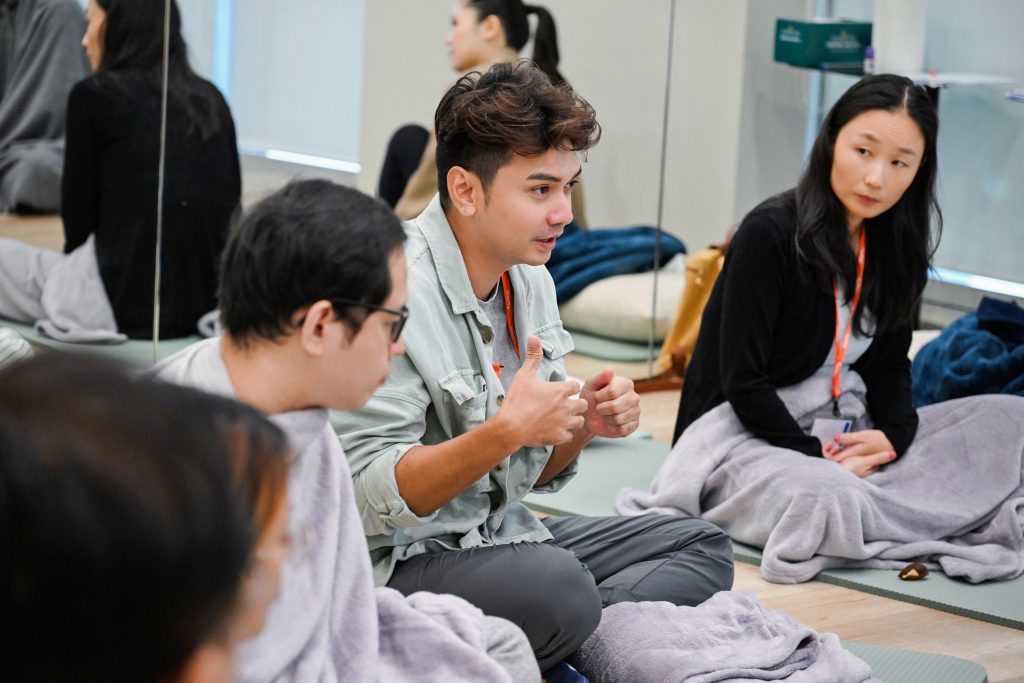
A Workshop That Changed Me
My journey into mindfulness began with scepticism but blossomed into revelation. In the wake of our collective journey, I emerged with a renewed sense of purpose and clarity—a testament to the transformative power of mindfulness in navigating the vicissitudes of modern life.
Armed with Tsao’s insights and the wisdom of generations past, I embarked on a journey of self-actualisation—a journey fueled by curiosity, compassion, and an unwavering commitment to inner growth.
As Tsao aptly observes, mindfulness is not a destination but a return—a return to the inherent wisdom and well-being that lie dormant within us all. In a world fraught with uncertainty and turmoil, the practice of mindfulness offers a beacon of hope—a reminder that amidst the chaos, there exists a sanctuary of peace and serenity, waiting to be rediscovered by those bold enough to embark on the journey within.
Participants were introduced to a few books after the session, should we be interested in reading more about the profound practice of mindfulness. One of the books that resonated deeply with me was Quantum Leadership: New Consciousness in Business by Tsao and Chris Laszlo. This book critiques traditional leadership models that fail to achieve beneficial outcomes for both businesses and communities. Its authors advocate for a shift in consciousness to unlock true leadership potential, emphasising creativity, collaboration and lasting societal contributions.
“Mindfulness is our natural state,” Tsao likes to remind us.
“Remember a time in your childhood when you felt happy and well? My deepest wish for you is to find out who you are, your calling and your purpose. Return to your natural state and you will enjoy that happiness and wellness.”






